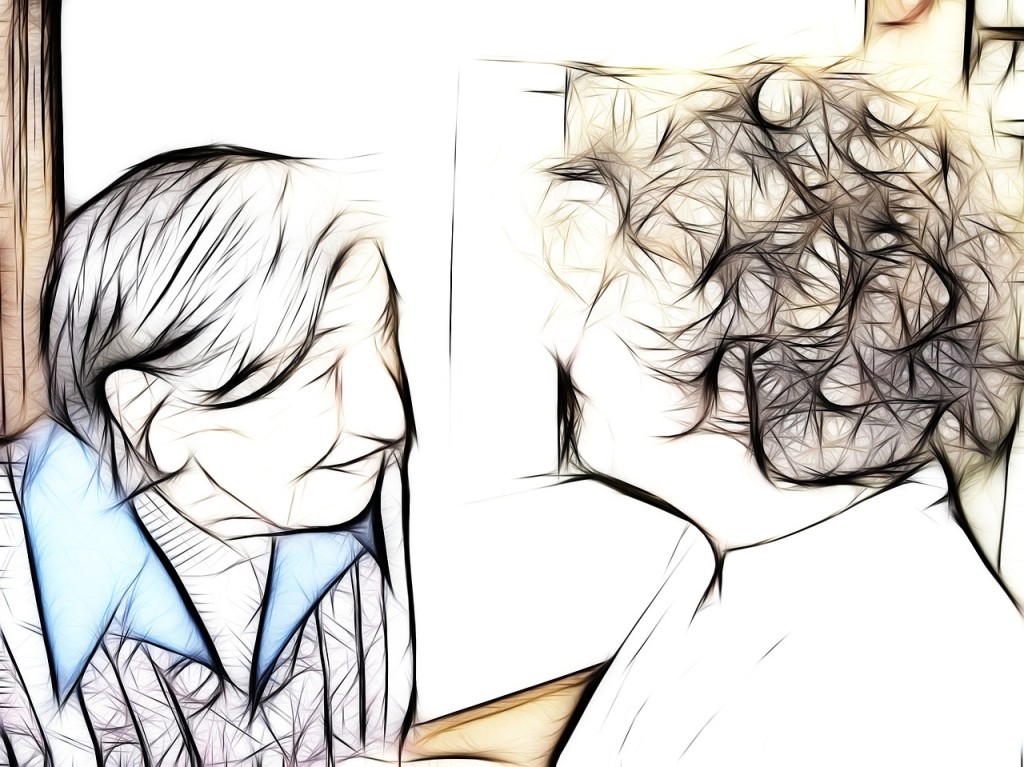Most readers of Jane Austen name Pride and Prejudice as their favorite of her novels. But my favorite has always been Emma. I don’t remember whether Emma was the first Austen novel I read, but I do remember that it was the first novel that, when I had finished, I went back to the beginning and started reading all over again.
 I’ve read Emma several times more, but Carol J. Adams’s essay “Jane Austen’s Guide to Alzheimer’s” introduced me to an aspect of the novel I had never noticed before: Adams argues that Emma’s father, Mr. Woodhouse, has dementia. Of Emma Adams says:
I’ve read Emma several times more, but Carol J. Adams’s essay “Jane Austen’s Guide to Alzheimer’s” introduced me to an aspect of the novel I had never noticed before: Adams argues that Emma’s father, Mr. Woodhouse, has dementia. Of Emma Adams says:
how she behaved toward her father confirms, to my reading at least, Mr. Woodhouse’s cognitive impairment. Deciding what to send as a gift is only one of the many activities that Emma does to assist her father. She helps him stay oriented, does the conversational work for him, and plays a simple game with him rather than the more complicated ones she prefers.
Adams writes that she read or listened to Emma several times during the middle stages of her 92-year-old mother’s Alzheimer’s disease: “What started as entertainment soon became an important guide.” Adams continued to read books about her mother’s condition and “began a dialogue in my mind in which I used what I learned about Alzheimer’s to deepen my understanding of the novel, and Emma’s behavior to instruct me on caregiving.”
One of the criticisms most often leveled at Emma—the character, not the novel—is that she’s a rich, selfish, spoiled brat who amuses herself at the expense of other peoples’ feelings. It’s true that she does almost ruin the life of her friend Harriet by trying to arrange for her an unsuitable marriage. And she’s rude to another woman during the trip to Box Hill near the end of the novel.
But, for Adams, Emma demonstrates the casualties of caregiving: “When you lose your cool, it might not be with your care receiver, but some unlikely individual in the wrong place at the wrong time.” And, Adams points out, when Emma’s brother-in-law teases her about all her social engagements, Emma replies, “how very, very seldom I am ever two hours from Hartfield,” the Woodhouse home. Adams remembers how giddy she was with anticipation over two hours of freedom when she had arranged for someone else to stay with her mother for a while.
The neuroscience of how reading fiction affects our brains and our personalities, making us more empathetic, understanding, and compassionate, receives a lot of press. Adams’s story of how reading and rereading Emma helped her through a difficult time in her life is more straightforward:
I needed Emma as an example, to inspire me to be more patient, less judgmental. Caregiving books tell us how to behave; Emma showed me.

